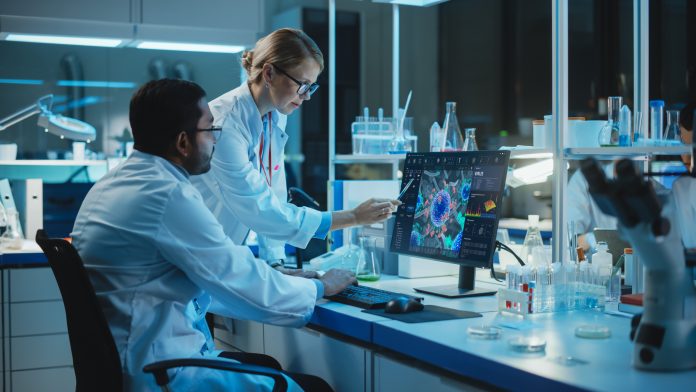The UK Government is pushing itself to become a world leader in AI-powered drug discovery with new investments and global partnerships announced during London’s Tech Week
OpenBind is the research consortium expected to accelerate the development of new medicines and transform global healthcare outcomes.
Revolutionising drug discovery
Based at the Diamond Light Source, the UK’s national synchrotron facility in Oxfordshire, OpenBind will bring together leading scientists from top global institutions.
With up to £8 million in initial funding from the Department of Science, Innovation and Technology’s Sovereign AI Unit, the consortium is expected to revolutionise drug discovery by creating the world’s largest dataset of protein-ligand interactions, which provides essential information on how drugs bind to proteins in the human body.
Five-year plan
Over five years, OpenBind aims to generate over 500,000 experimentally validated protein-ligand structures and measurements, 20 times more than have been collected publicly over the past 50 years.
This high-quality, large-scale data will act as a foundation for training cutting-edge AI models that can accurately predict how new drugs interact with disease targets.
This project is filling a gap in pharmaceutical research and development; it is expected to reduce the time and costs of bringing new medicines to market by as much as £100 billion.
OpenBind also represents a clever move to strengthen the UK’s global position in bioscience and AI. Creating this dataset will not only benefit healthcare and pharmaceutical innovation but also have broader applications in molecular biology and engineering biology, including the design of new enzymes to address environmental challenges such as plastic waste.
Technology and AI for economic growth and public service transformation
OpenBind will also collaborate with leading pharmaceutical and AI companies such as Isomorphic Labs, Astex Pharmaceuticals, Genentech, and Chai Discovery, which will engage in upcoming investment discussions to scale the project.
Sir Demis Hassabis, CEO, Isomorphic Labs, said: “High-quality biochemical data supports superior AI models, which in turn helps us design new drug candidates faster.
“We’re delighted to partner with the OpenBind Consortium and the UK government to cultivate this vital resource. This is a brilliant initiative for UK science, and we’re proud to support it from its inception.”
UK leading AI and bioscience sectors
Imperial College London has also announced a partnership with the World Economic Forum to establish a new Centre for AI-driven innovation in the UK.
This centre will form part of the Forum’s global network focused on the Dourt Industrial Revolution and will drive cross-sector collaboration on AI adoption.
OpenBind and the innovation centre demonstrate a significant push by the UK to take a leading role in the AI and bioscience sectors. These projects are designed to accelerate scientific discovery and also attract international talent, investment, and collaboration. Overall, ensuring that the benefits of AI in medicine are realised more quickly and effectively across the globe.
As London Tech Week continues to unfold, these announcements mark a new era of AI-led science in the UK, where cutting-edge research is combined with public-private cooperation to accelerate innovation and drive economic transformation.











